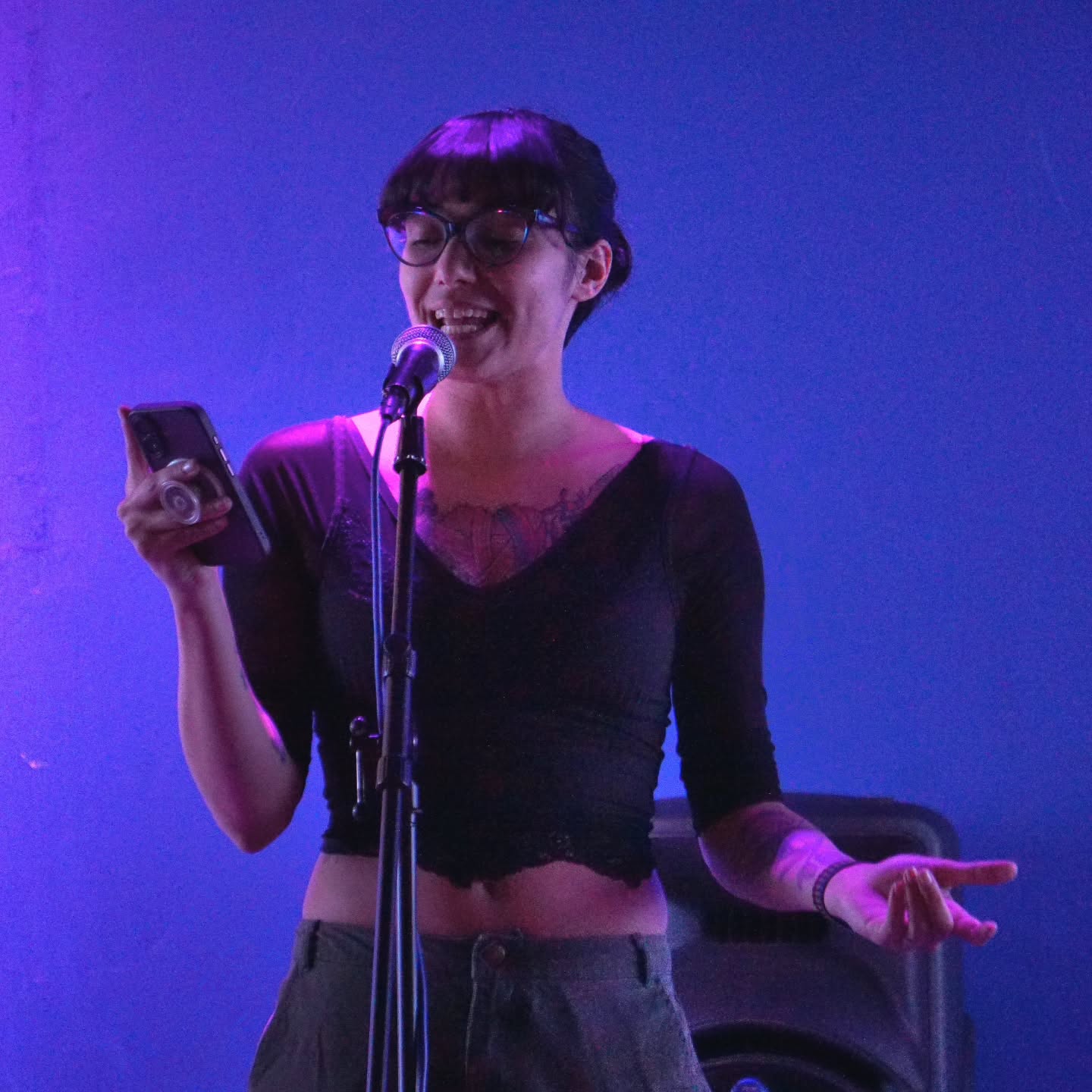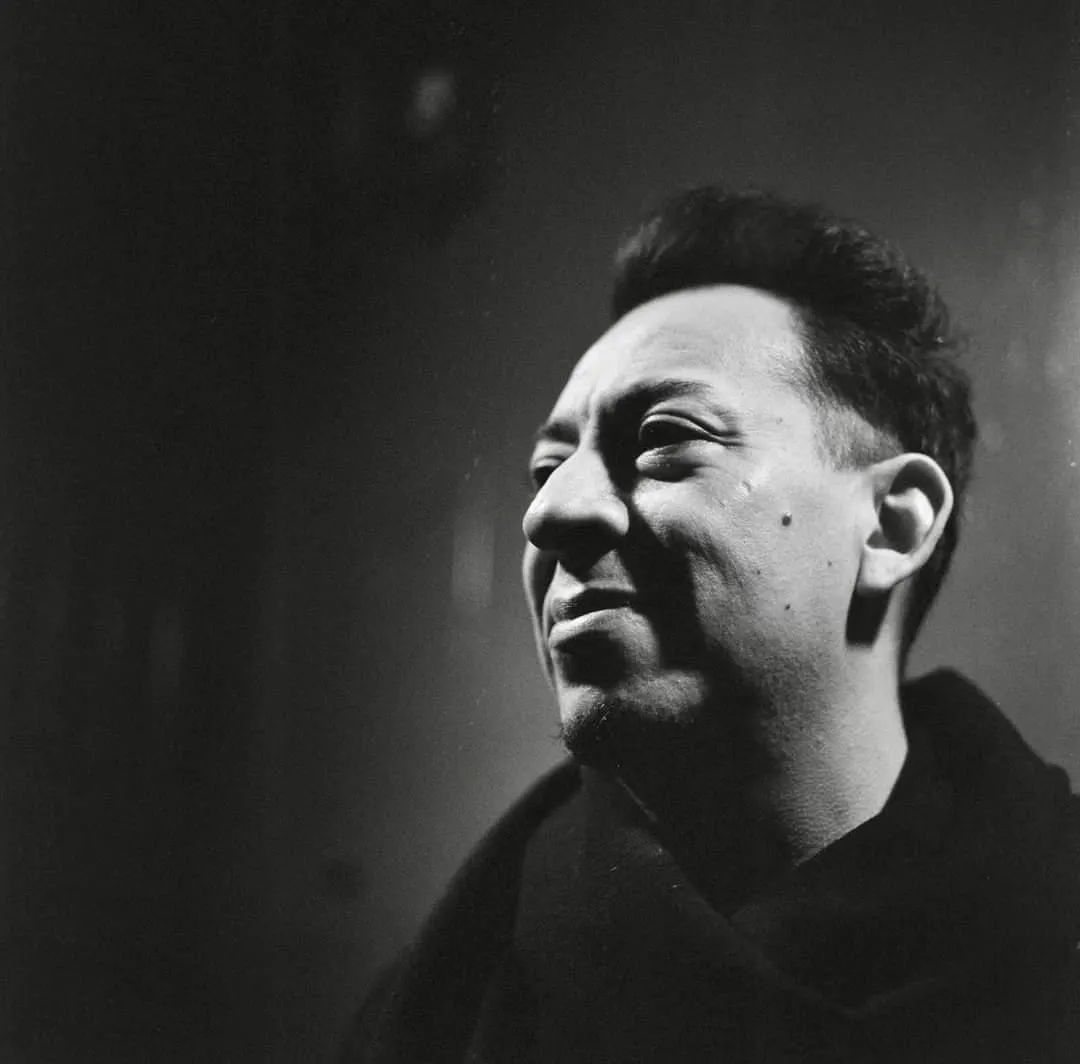Events
AZpoetry.com is your gateway to the dynamic poetry scene in Arizona. Discover an array of exciting poetry events taking place throughout the state – Arizona poetry open mic nights, poetry slams from Tucson to Bullhead City, AZ poetry workshops, and Grand Canyon State poetry readings! Immerse yourself in the power of spoken word, connect with fellow poetry enthusiasts, and be inspired by the magic that unfolds on stage. Stay up-to-date with our comprehensive event calendar and make sure you never miss a captivating performance.
Poem of the Day
-
- Pieces of the Night by Doug Hopkins
“Pieces of the Night” by Doug Hopkins
Well is it any wonder that the stars don’t just rush by
When you’re only doin’ 60 through this oh-so-vacant night
But it’s lackin’ something big this time
What the hell did you expect to find?
Aphrodite on a barstool by your sideTwelfth night we go
After something everyone should know
Somewhere in the distance out of sight
Then I saw gin mill rainfall
What do you remember if at all?
Only pieces of the nightAnd is it any wonder in the middle of the crowd
If you let your feet get trampled on
When the music is that loud
But you wanted to be where you are
But it looked much better from afar
A hillside in shadow between the people and the starsTwelfth night we go
After something everyone should know
Somewhere in the distance out of sight
Then I saw gin mill rainfall
What do you remember if at all?
Only pieces of the nightAnd it seems so distant
But still only half the night away
Where notions between your questions come too
Is it any wonder where
The pieces of the night have been?Twelfth night we go
After something everyone should know
Somewhere in the distance out of sight
Then I saw gin mill rainfall
What do you remember if at all?
Only pieces of the night
Only pieces of the night
Then I saw
Only pieces of the nightTwelfth night we go
After something everyone should know
Somewhere in the distance out of sight
Then I saw gin mill rainfall
What do you remember if at all?
Only pieces of the nightTwelfth night we go
After something everyone should know
Somewhere in the distance out of sight
Then I saw gin mill rainfallWatch “Pieces of the Night” by Gin Blossoms
About the poet Doug Hopkins
“Pieces of the Night” by Doug Hopkins, and performed by the Gin Blossoms, is a haunting meditation on the fleeting nature of our memories and experiences. Through vivid imagery—driving slowly through a vacant night, encountering the surreal sight of “gin mill rainfall,” and evoking the legendary allure of a mythical figure on a barstool—Hopkins captures how moments of beauty and chaos slip away, leaving us with only fragments. The recurring reference to “Twelfth night” hints at the cyclical nature of these ephemeral experiences, suggesting that even as time passes, the impressions of the night linger like scattered pieces of a once-vibrant puzzle.
Hopkins’ lyrics challenge us to reflect on what we truly remember when the night fades into dawn—are our memories as complete as we wish, or are they, like the stars, just fragments of a greater, elusive tapestry?
To learn more about Doug Hopkins, his unique poetic vision, and his contributions to Arizona’s cultural landscape, visit his full bio HERE.
Listen to Gin Blossoms on Spotify
- Pieces of the Night by Doug Hopkins
Discover Arizona Poets
-
Laura Tohe
Laura Tohe, Arizona Poet Laureate Laura Tohe is an award-winning poet, writer, scholar, and educator who was recently named the Arizona Poet Laureate, becoming the second person in the state’s history to hold the title. Born in Fort Defiance, Arizona, Dr. Tohe grew up bilingual, speaking both Diné bizaad (Navajo) and English—an experience that continues
-
Lydia Gates
Lydia Gates — Queer Autistic Performance Poet from Flagstaff, Arizona Lydia Gates is a queer autistic performance poet and crochet artist based in Flagstaff, Arizona, where she lives with her wife, Lucy, and their “three adorable feline monster children.” Known for her dynamic stage presence, emotionally incisive writing, and creative interdisciplinary work, Gates has become
-
B-Jam (Ben Gardea)
Arizona Slam Poet, Performer, and Community Builder Ben Gardea, known throughout the Southwest poetry scene as B-Jam, is a nationally recognized slam poet, performer, and workshop leader based in Phoenix, Arizona. A driving force in the Arizona spoken word community, Gardea blends personal vulnerability, rhythmic delivery, and social awareness into performances that resonate across audiences
-
TC Tolbert
TC Tolbert – Tucson Poet Laureate (2017 – 2023) TC Tolbert serves as a vibrant and transformative voice in contemporary American poetry. Appointed as the Poet Laureate of Tucson in 2017, Tolbert guided the city’s literary engagement through 2023, shaping a poetic culture rooted in inclusion, empathy, and the desert’s quiet resilience. Tolbert’s years as
-
Chelsea Guevara
Chelsea Guevara: U.S.-Salvadoran Voice, Slam Champ & Storyteller of Memory & Belonging From Utah Roots to National Slam Triumph Chelsea Guevara is a U.S.-Salvadoran poet and spoken word artist originally from Salt Lake City, Utah. In 2024, she made history by winning the Womxn of the World International Poetry Slam, becoming the first Salvadoran and
-
Ashley Naftule
Ashley Naftule: Phoenix Poet, Playwright & Performance Artist Ashley Naftule (they/them) is a dynamic poet, playwright, performer, and arts journalist based in Phoenix, Arizona. Known for blending speculative themes, queer and trans identity, and razor‑sharp lyricism, Naftule is deeply rooted in Arizona’s creative community through their innovative work at Space55 Theatre and beyond (Planet Scumm).
-
Rex Arrasmith
Rex Carey Arrasmith: Bridging Worlds Through Poetry and Fiction Rex Carey Arrasmith is a poet and fiction writer whose work traverses the landscapes of memory, identity, and the natural world. Splitting his time between Sedona, Arizona, and Lāna’i, Hawaii, Arrasmith draws inspiration from the vortexes of Arizona’s Coconino National Forest and the serene beauty of
-
Gary Every
Sedona’s Storyteller, Poet Laureate, and Genre-Bending Wordsmith Gary Every, the Poet Laureate of Sedona, Arizona, is a literary force known for his genre-defying style, energetic performances, and profound connection to the American Southwest. With over 1,300 publications and nine books to his name, Every has earned recognition in poetry, fiction, journalism, and speculative literature, carving
-
Natasha Murdock
Natasha Murdock: Suburban Elegy and the Poetics of Everyday Awe Natasha Murdock is a poet whose voice emerges from the quiet corners of suburban life, motherhood, and memory. Based in Gilbert, Arizona, Murdock holds an MFA in Poetry from Arizona State University, where she honed a poetic style that embraces clarity, understatement, and emotional depth.
-
Josh Rathkamp
Josh Rathkamp: Arizona Poet, Educator, and Voice of the Everyday Sacred Josh Rathkamp is a celebrated American poet and educator whose work captures the quiet complexities of contemporary life. Born in Saginaw, Michigan, Rathkamp earned his BA from Western Michigan University, followed by an MFA in Poetry from Arizona State University and an MFA in
Browse our database of known poets in Arizona, from the past to present day. Discover the lives of poets, the rich history of wordsmiths in the Grand Canyon State, and plunge into their work through recordings, books, and some poetry that the poets have given us permission to publish here.
🖋️ Share Poetry, Connect with Community 📚
We believe in the transformative power of words and the importance of fostering a supportive community of poets. Whether you’re a seasoned wordsmith or exploring poetry for the first time, AZpoetry.com provides a platform for you to showcase your work and connect with fellow poets. Submit your poetry to our collection, engage in constructive discussions, and receive valuable feedback from our vibrant community.
🌵 Join Our Thriving Poetry Community 🌵
Become a part of our thriving poetry community in Arizona. Connect with like-minded individuals who share your passion for poetry, attend events that will leave you spellbound, and uncover the hidden gems within Arizona’s poetry landscape. Together, let’s celebrate the beauty and power of words.
Start your poetic journey today at AZpoetry.com and let your words create a lasting impact on Arizona’s poetic legacy.

















